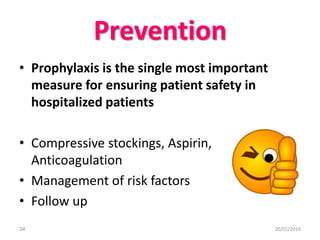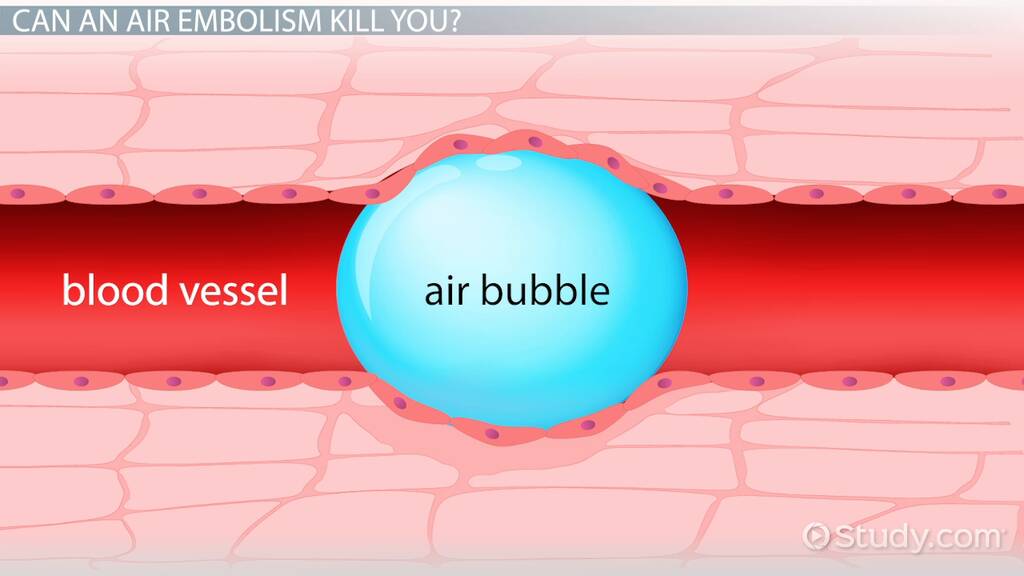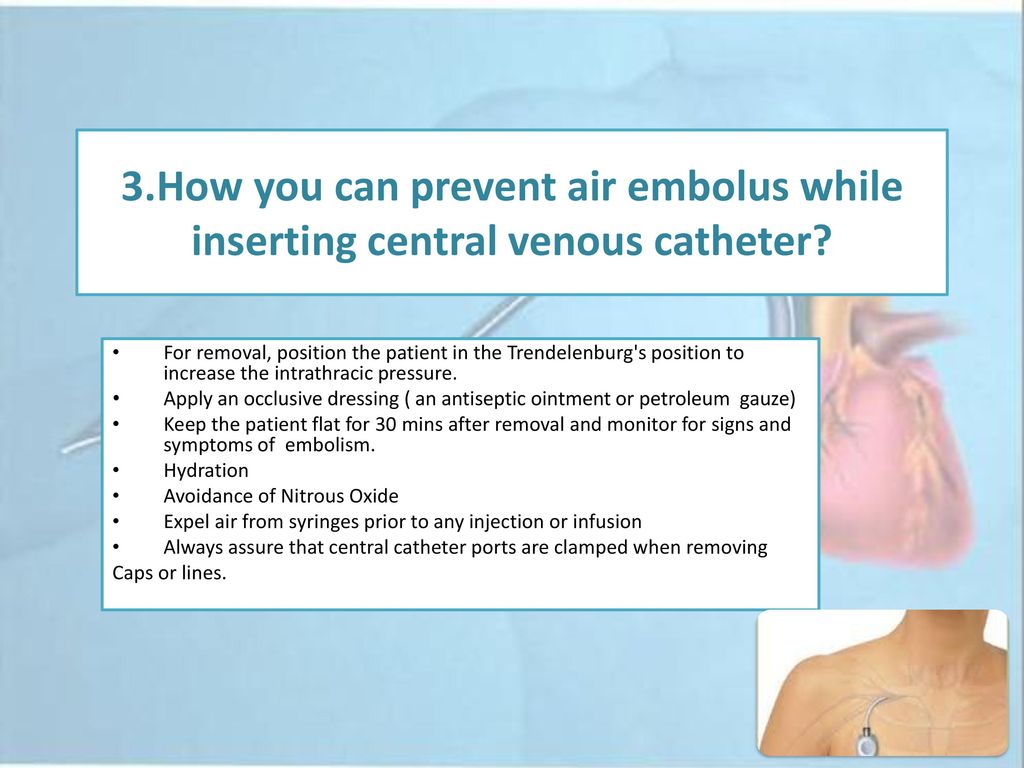Simple Info About How To Prevent Air Embolism

Abstract although fortunately rare, the serious and potentially fatal complication of air embolism continues to occur.
How to prevent air embolism. How to prevent air embolisms in scuba diving. If an air emboli is suspected, treatment must begin rapidly in order to prevent patient harm. Never dive if you have a.
Once a diagnosis is made, definitive treatment via hyperbaric. Preventing an air embolism while diving the following advice can help reduce your risk of developing an air or gas embolism when diving. — teach patients and/or caregivers managing infusion therapy how to perform all steps necessary to prevent air embolism.11,12,13 removal of central venous access devices —.
Air embolism during line placement can be reduced by keeping a finger over the open end of the. Air embolism prevention benson b. Bubble sensors are devices used to detect bubbles in almost all tubing and fluid material used in medical devices.
The same measures used for removing short peripheral intravenous. Rest is necessary for the body, but it’s also good to get your blood moving. To prevent air ingress when removing a peripheral intravenous catheter, the exit site needs to be lower than the heart.
Place the patient in the trendelenburg position (on their left side. Limit the depth and duration of your dives. Let’s go over some quick tips on how to prevent an air embolism from occurring when scuba diving.
To avoid further embolization, patients should be placed in trendelenburg or in the left lateral decubitus position. Air embolism is an uncommon, but potentially catastrophic, event that occurs as a consequence of the entry of air into the vasculature. They detect bubbles in infusion lines, transfusion lines, and dialysis machines.

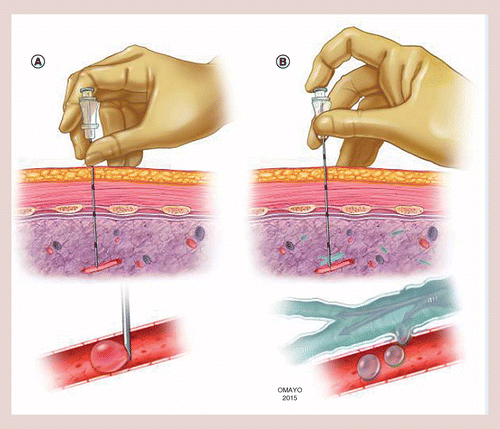
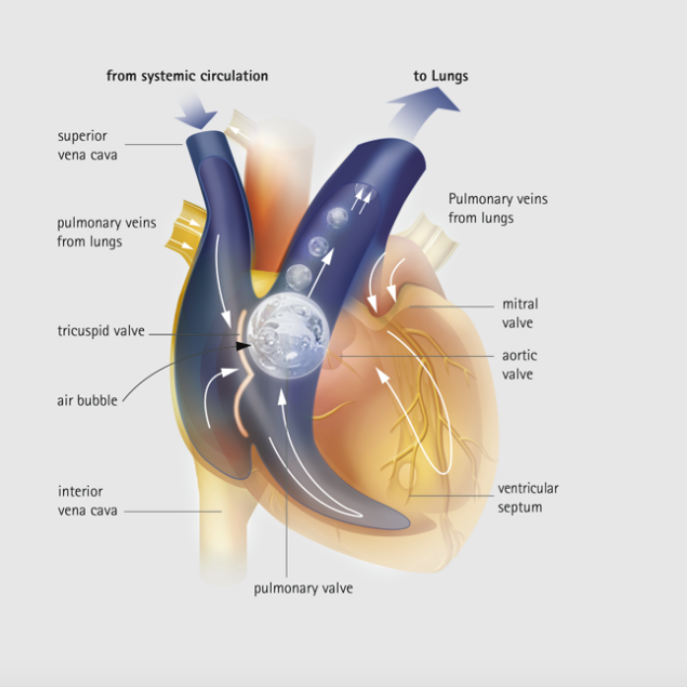




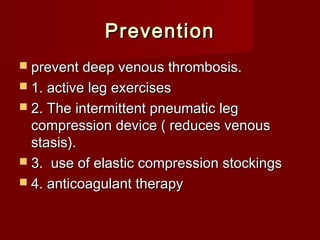


:max_bytes(150000):strip_icc()/pulmonary_embolus_symptoms1-5ae1f414a474be00366ff6ae-a99bdb7a4e074568924d73da77ede765.png)

.jpg)
